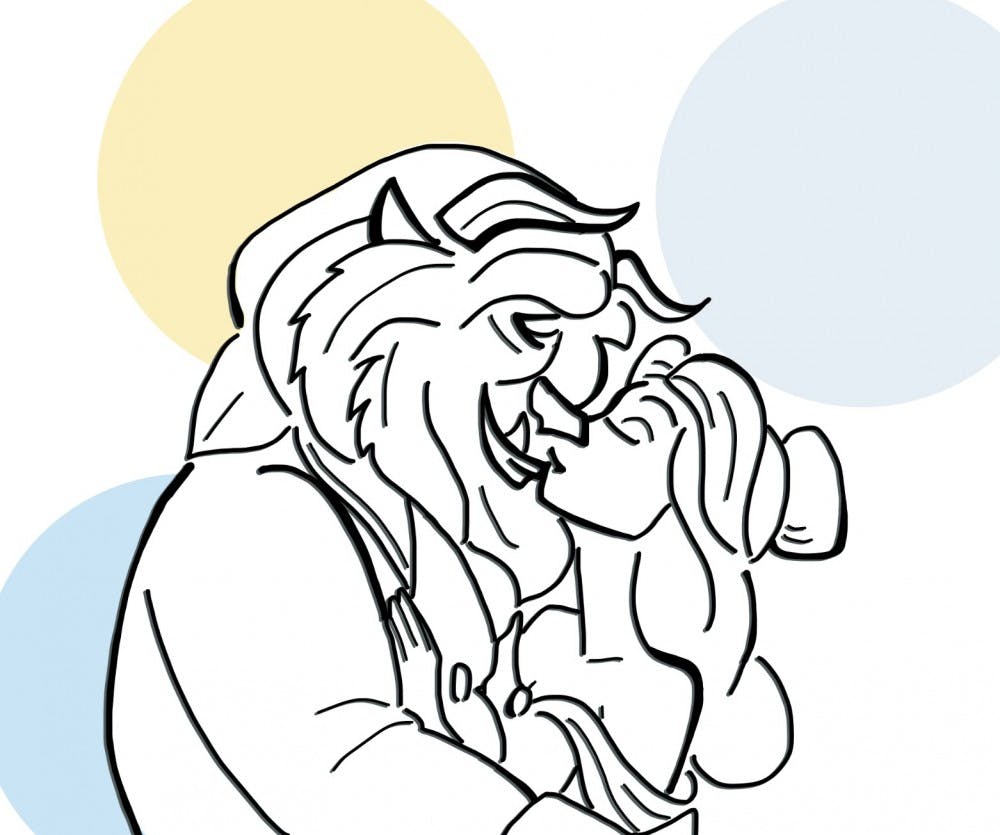If you obsessively watched Disney movies as a kid, you know the nostalgic hold they have over us. Even now as adults, we can still find ourselves re–watching classics like Beauty and the Beast and The Little Mermaid more times than we probably should. It’s because they’re feel–good movies, with captivating animation, fantastical adventures, and the promise of true love around every corner—until you grow up a little and realize they’re not as feel–good as you once thought.
Behind all the Disney magic, handsome princes, and true love’s kisses lie subtle messages about love that are so not true. These are messages that, when repeated as often as they are, can lead to some really unrealistic, and potentially harmful, expectations about love.
1. Love is romantic
As portrayed in almost every Disney movie ever, we are told that true, "fulfilling" love is romantic and shared between a man and woman. Sure, your trusty best friend will never leave your side and your mother cares about you more than life itself, but Disney says that your life will never be complete until you’ve found "the one." Heteronormativity aside, this couldn’t be further from the truth. Romantic relationships are not the only way to have meaningful connections with people. Some of the most enduring and satisfying bonds you can have are with friends, parents or even siblings! Disney gave us a rare peek at what that can look like with the sister relationship between Queen Elsa and Princess Anna in Frozen. Here’s to hoping for more heartfelt sister duos in future Disney films and less recycled romantics.
2. Love is effortless
Another common theme in tons of Disney romances is the lack of agency for the princess/female protagonist. Often, we see a princess like Cinderella spend much of her on–screen time sitting idly in her unhappy home and waiting for her man to make the move. Two of Disney's most well known princesses, Snow White and Princess Aurora are literally sleeping when princes rush in, plant (unconsenting?) smooches on their faces and marry them 30 seconds later. This encourages a dangerous mindset of placidity for young girls. The one–dimensional Prince Charming archetype also tells boys that their sole purpose is to swoop in and save girls from their own docility. The reality is that relationships are hard, and require effort. More often than not, your potential partner will not spontaneously sweep you off your feet—you’ll actually have to have a real conversation with them first. But the beautiful thing is that all the hard work you put into your relationship is actually what makes it worth it.
3. Love fixes everything
We've all had our fair share of rough patches, and Disney princesses are no exception. They've had to deal with some pretty horrible situations ranging from evil stepmothers, controlling fathers, stolen voices, and even house arrest. Disney then presents true love as the solution to these problems. A true love's kiss is used often to provide the unrealistic quick fix many of these short films need. It saves Princess Ariel from a voiceless future, trapped with the evil sea witch, Ursula. It saves Princess Tiana from living her life as a slimy frog. It saves Snow White and Princess Aurora from death itself. We're told that no matter how difficult our personal hardships, the love of our significant other will always be able to save us. This not only dampens the confidence we need to find solutions to our own problems, but it creates an unhealthy attachment to our romantic partners based on unattainable expectations and false hope. Love, in all its comfort and beauty, doesn't have the power to bring us back from the dead, much less fix our real–life problems.
4. Love is living happily ever after
It’s not a real Disney movie until you reached the end and you see the recently married, happy couple riding off into the sunset or snuggling up at home with their five, cute kids that came out of nowhere. In short, it’s not Disney if you’re not living a very specific version of happily ever after. Now, who doesn’t enjoy a happy ending? But constantly feeding the same version of perfection to kids tells them two things. Firstly, it says, “Hey, you won’t be happy until you have secured a spouse, raised a bunch of babies, and lived a peaceful life with said spouse and babies.” This cookie–cutter version of love within a nuclear family does not consider divorce, remarriage, or adopted children—and can make any of these normal occurrences seem like blemishes. It tells kids that endings are always happy when that’s almost never the case. Whether it be a romantic partner, friend, or family member, your relationships with your loved ones will hardly ever end amicably. Maybe you’ll get dumped. Or maybe you’ll be the one doing the dumping. Maybe a friend wasn’t as trustworthy as you thought. Many relationships end and it’s not always happy, but it’s important to remember the parts in between that were.
All in all, Disney films are meant for kids and serve as an escape from this sometimes really sad world, but it’s important not to bombard young people with a false reality about love I won’t lie—I will probably continue to religiously watch my Disney favorites, but definitely with many grains of salt. So, Disney, I say this to you: when it comes to matters of the heart, stay romantic, but at least include a little reality in there somewhere.







